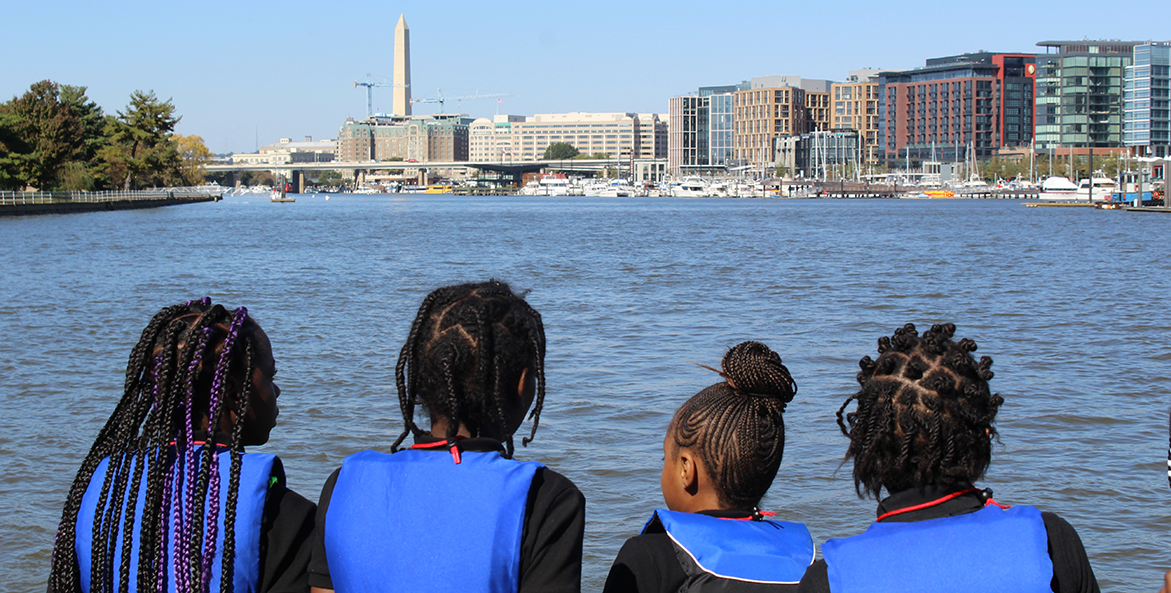Spring 2025
CBF President Decries Proposed Federal Agency Cuts
Chesapeake Bay Foundation President and CEO Hilary Harp Falk denounced the Trump administration's assault on environmental protections, funding, and agencies as "crushing blows" to Bay restoration.
President Trump and EPA Administrator Lee Zeldin are slashing staff at EPA and other agencies involved in Bay restoration and want to cut EPA's budget by at least 65 percent. They have frozen billions of dollars in federal grants that clean up streams, plant tree buffers, expand brook trout habitat, and fund countless other projects that enhance local communities and help improve the health of the Bay and its rivers and streams. Trump and Zeldin have also called for reversing science-based safeguards instrumental to restoring and protecting the Bay and its waterways.
Falk said these actions have "rolled out an existential crisis for the Chesapeake Bay restoration effort." In a February 27 statement, Falk said, "We cannot allow a healthy Chesapeake Bay to be a casualty of a misguided effort to root out waste... Losing decades of progress, undermining science, destroying the federal/state partnership, and jeopardizing our future—that's not just a waste, it's a tragedy."
Two weeks later, Falk said, "Clean air and clean water are rights that cannot be taken for granted. We must stand up for the health and wellbeing of our region's people, the Chesapeake Bay, and its rivers and streams."
Bay Region Lawmakers Reintroduce Farm Conservation Bill
House members and senators from the Chesapeake Bay region reintroduced bipartisan legislation CBF supports to help accelerate farmers' progress reducing agricultural runoff into the Bay and its rivers and streams. The bill was first introduced in July 2023.
The Chesapeake Bay Conservation and Acceleration Act proposes five changes to make in the next Farm Bill to support Bay region famers who adopt voluntary conservation practices, like planting streamside forested buffers, that lead to cleaner rivers and streams. Proposals include increasing financial incentives for farmers to enroll in conservation cost-share programs and expanding the number of people trained to provide technical assistance to farmers who participate in these programs.
The bill was introduced in the House by Chesapeake Bay Task Force co-chairs Rob Wittman (R-Va.), Andy Harris (R-Md.), Bobby Scott (D-Va.), Sarah Elfreth (D-Md.), and Representative Jennifer Kiggans (R-Va.). It was introduced in the Senate by Senators Chris Van Hollen (D-Md.), Angela Alsobrooks (D-Md.), Tim Kaine (D-Va.), John Warner (D-Va.), John Fetterman (D-Pa.), and Lisa Blunt Rochester (D-Del.).
Bipartisan Congressional Chesapeake Bay Task Force Relaunched
Longtime co-chairmen Rob Wittman (R-Va.), Andy Harris (R-Md.), Bobby Scott (D-Va.) and new co-chair Sarah Elfreth (D-Md.) formally relaunched the Congressional Chesapeake Bay Watershed Take Force for the 119th Congress on February 27. Newly elected Representative Elfreth replaces former co-chairman John Sarbanes, who retired from Congress last year.
The bipartisan task force educates members of Congress and provides a forum for discussions and join action related to water quality, resource management and conservation, and recreation issues affecting the Bay region. This includes developing regional policy initiatives and supporting robust federal funding to help states meet their goals for reducing water pollution under the Chesapeake Bay Watershed Agreement.
—Keisha Sedlacek
Federal Director
Chesapeake Bay Foundation



